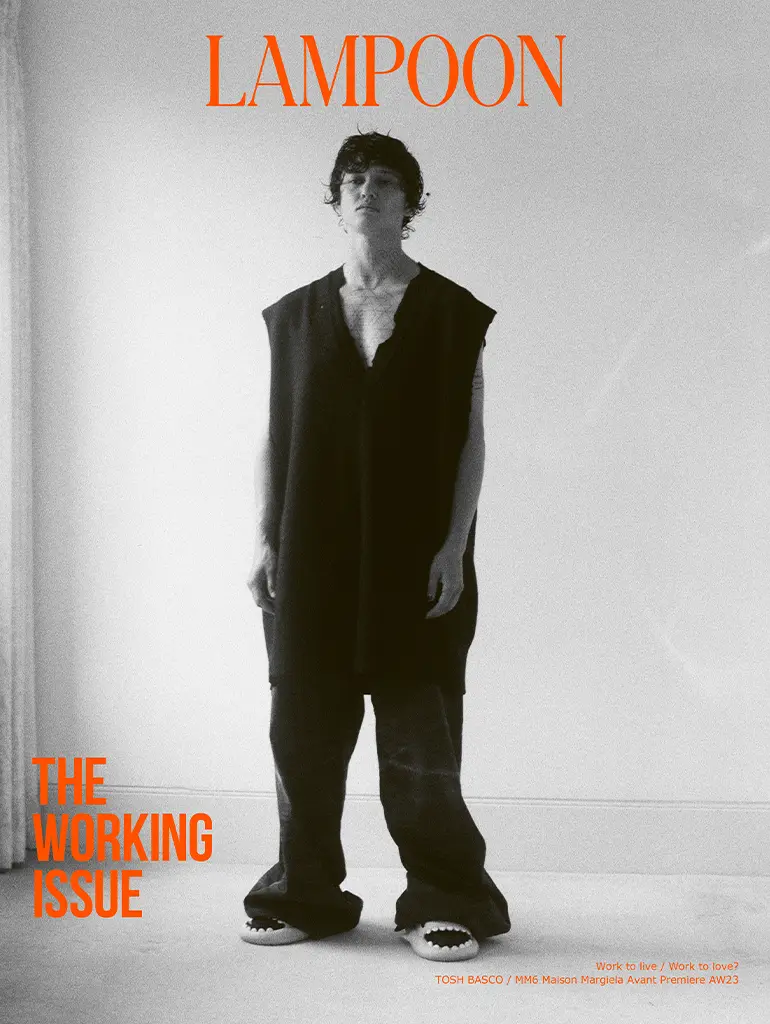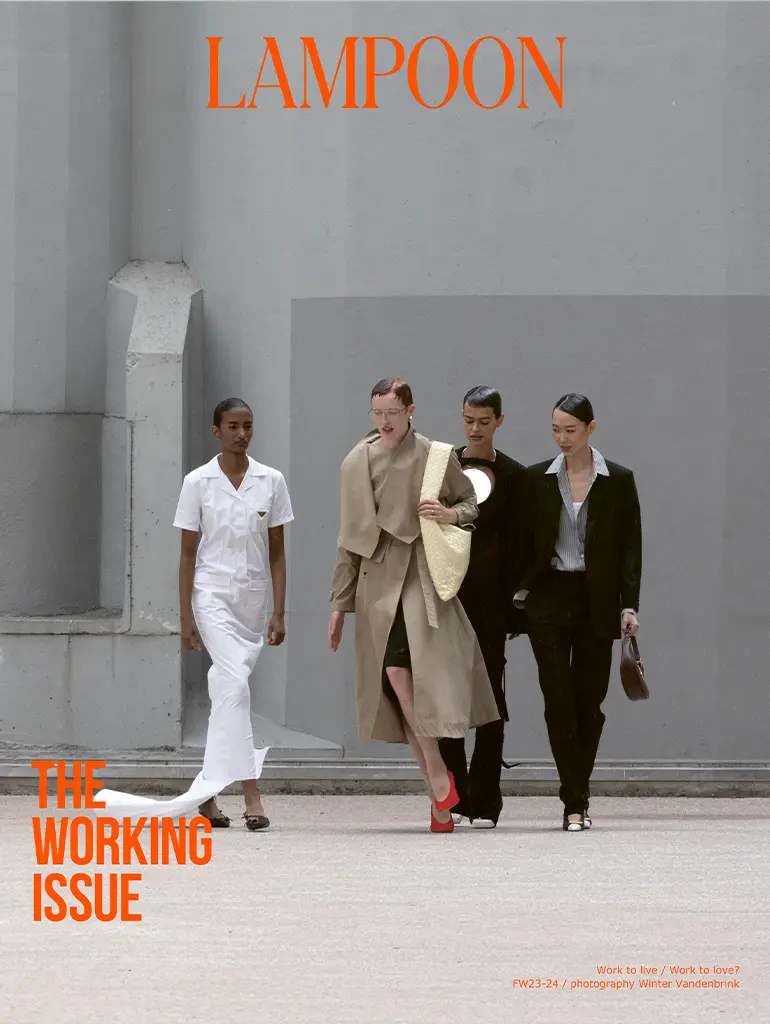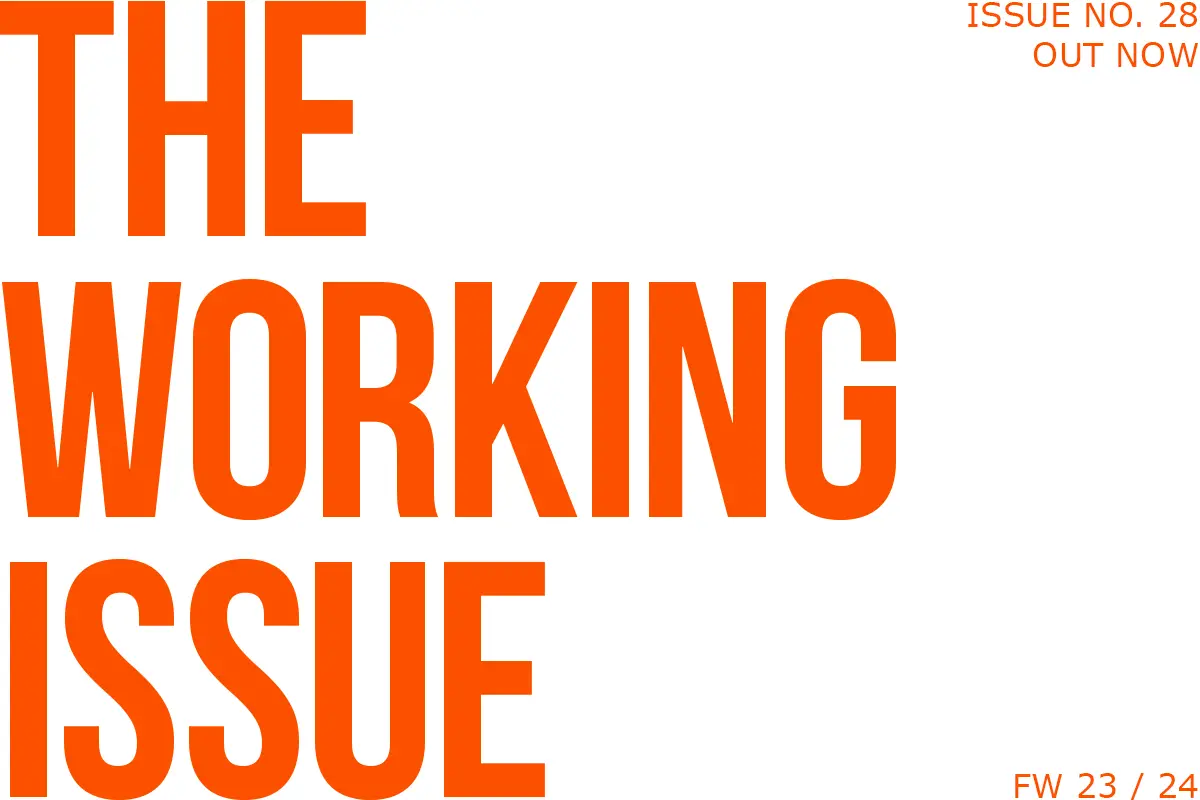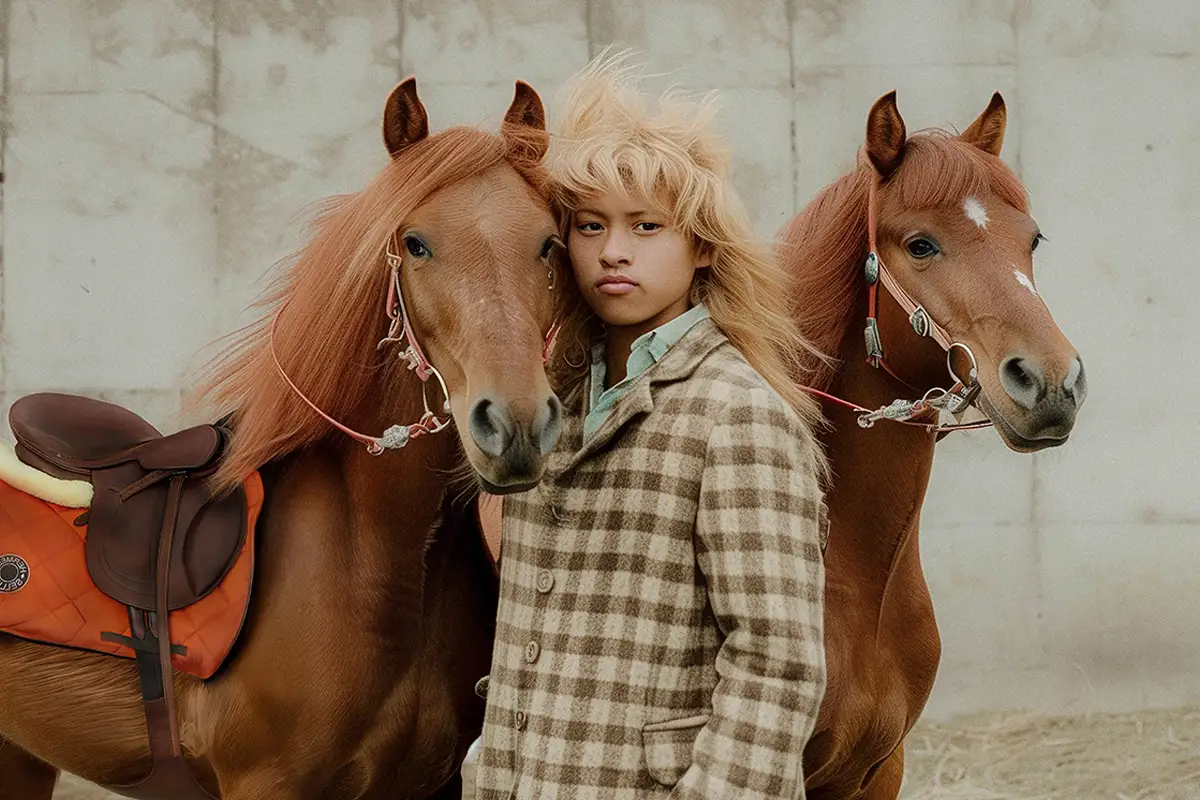From Parris Goebel’s choreography to James Norton on stage, to young Italian men making ends meet on OnlyFans: work is always the first expression of human dignity
Lampoon, we are a community: the sharing of a path, not the collective achievement of a goal
At Lampoon we care about community. A community that doesn’t include only readers, but those who identify with our commitment, our attitude. They don’t necessarily have to read the magazine – although I hope they do. They can recognize themselves in the images we produce and publish, in the roughness of the photography that we always like to be analog, in the tone of voice of the titles of our stories: being part of a community is about sharing a path, not the collective achievement of a goal.
Lampoon, The Working Issue: James Norton, the stage and blood sugar
This issue of Lampoon is dedicated to those who work. Work is about commitment, before achievement. Work is effort, dedication and seriousness, before success and gain. This issue is dedicated to those who tell of the evolution of their ability to stay focused. For his on stage performance of A Little Life in London, James Norton had to keep his blood sugar level swings at bay – as I do too – regulating his blood sugar by injecting himself with insulin or consuming shots of glucose. Fatigue, frailty and illness. Pain is the first teacher of life. Voids are not to be hidden. Pauses set the rhythm. You need silence to hear music.
Lampoon, The Working Issue: the meaning of work, people and habits
We work for people who find calm, peace even, in what they do every day. Human beings who are able to express themselves while remaining sincere. People who are willing, who are ready to change their habits. The point of work today should be about changing both our own habits and the habits of others. We don’t care for those who find satisfaction in vanity or complacency. Those who arouse envy in order to draw attention, who spread discomfort and hatred in a tweet.
Lampoon, The Working Issue: choreography at the Super Bowl, and Parris Goebel’s 280 dancers
It was February. It was around this time that we were discussing what the theme of this issue should be. The title and narrative thread of the issue you now have in your hands. The pages you are considering whether to flick through. On Sunday night, during the Super Bowl half-time show, Rihanna danced on a suspended platform. She was pregnant, her belly already prominent (a few weeks earlier, when this was still undisclosed, Rihanna had said that she was thinking of bringing a guest with her on stage for the performance). Rihanna was surrounded – on the ground and on other flying platforms – by 280 dancers moving in sync and in rhythm according to the show’s choreography. What a job, that choreography, we thought aloud. The show was choreographed by Parris Goebel who we have photographed and interviewed on these pages.
Lampoon, The Working Issue: Robert Hughes and the relevant snobbery when catalyzing competition
Robert Hughes taught us that the task of democracy in the field of art is to protect elitism. The recognition of merit – and thus, as a consequence, the sentiment that elitism produces: snobbery. Mind you, watch out. We are not talking about an elitism based on race, money or social rank – but on talent and imagination, skill and rigor of character. To a circle defined by these powers, one desires, craves, and yearns to belong.
Robert Hughes provided a comprehensible example, recalling how much he had coveted being on the regional swimming team. He would have preferred to train with those on the team rather than with his classmates. If he had ever succeeded in making the team, he certainly would not have missed an opportunity to brag about it or avoid competing with substandard athletes again.
The Communist Party slogan, quiet quitting and freelancing
Work less, work all, produce what is necessary, redistribute everything. This slogan, which comes from the communist tradition, seems like something that should have been forgotten – instead it appears alive and well among the new and uncultured generations. Work is okay if it improves our daily lives – but if all it brings is fatigue, intellectual effort, haste and performance anxiety, work should be minimized (this can be ironic: you may remind that Flaubert flayed his brains out on countless sleepless nights, only to write four words).
Today, the common mindset is that when you work less, you work better. Today, you must enjoy life, not live to achieve a goal. Haste is bad, but to tolerate a delay there must be shared patience. This is quiet quitting: it means doing the bare minimum of what is required – and having patience if you get laid off. Quiet quitting is the opposite of the concept of steadiness that we believe in at Lampoon.
The younger generations have chosen to quit their jobs. They are twenty-eight years old, or so. They have decided to work as freelancers, consultants. It is a strange word, consultant: it indicates someone – a professional or a company of professionals – who assists you in demarcating operations and relationships, without taking full responsibility for them. We understand Consultancy as the advice offered by those who have had experience in precise fields – but instead those who offer it are young people who have just terminated, by their own volition, a permanent contract.
From Hustle Culture to OnlyFans: the intellectual snobbery of virtual prostitution
Hustle Culture is the culture of hyperactivity, hyper availability. We are always working, we are always exhausted. There is no room for ambiguities, for contradictions – the beauty that distinguishes us as human beings. A virtual form of prostitution: conversations, videos, pictures. We photographed some young Italian men who told us of their income on OnlyFans. We began to perceive a pride amongst them, a sense of superiority when compared to social media influencers. On OnlyFans, one can offer images of their naked body for a fee. On Instagram, one’s towel is precisely lower than the first pubic hair and that image is for everyone. There is even an intellectual snobbery. Today, those who earn money on OnlyFans mock and dismiss those on Instagram who try to advertise a branded handbag.
Lampoon, The Working Issue: the definition of ethical entrepreneurship – work ennobles man, work grants him dignity
The beauty of work is the fatigue that it teaches. We don’t work solely to earn money, but to leave a positive trace behind us. We call it ethical entrepreneurship. It sounds utopian, but it is the only possibility for this planet. Some might say it resembles communism – but that would not be reasonable. Others might say they don’t care about your child or the children of others.
Darwin said that work ennobles man, but one can infer from this an underlying layer, a further level of depth: not only does work ennoble man, but work grants dignity to man. One returns to that phrase by Malaparte, who wrote that every man is unbearable on the throne of his glory, every man is tolerable, understandable and lovable only when he is in the dirt with us. Work is attention, love is attention: we are not on this Earth just to enjoy it, we are here to love – and while it remains true that there is no happiness without love, it is even more true that love can exist without happiness.
Carlo Mazzoni






















